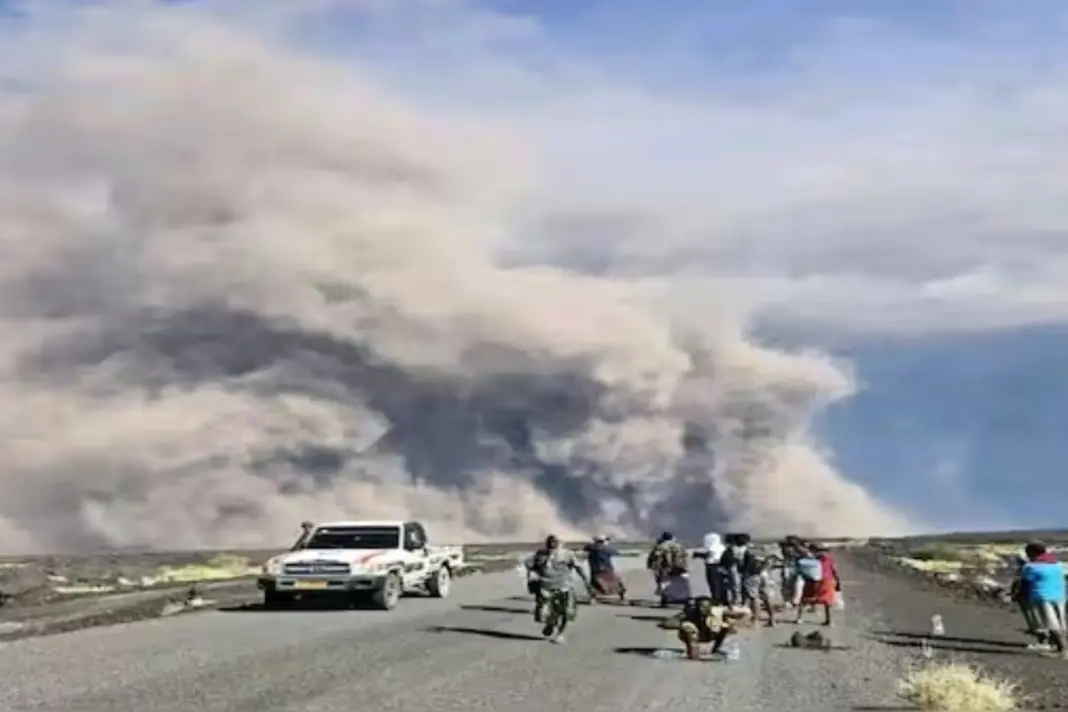Ethiopian Volcanic Ash: Ash from Ethiopia’s Hayli Gubbi volcano is reaching India, causing severe disruptions to air travel, though ground-level pollution remains limited.
A Volcanic Plume Travels Across Continents
After erupting for the first time in 12,000 years, Hayli Gubbi’s ash plume entered India at 100–120 km/h, crossing multiple states and raising aviation concerns.
Major Flight Disruptions Begin
As the ash drifted in, several flights were either cancelled or diverted.
- IndiGo cancelled at least six flights.
- Akasa Air suspended services to Jeddah, Kuwait, and Abu Dhabi for November 24–25.
- KLM also reportedly cancelled its Amsterdam–Delhi and return flights due to the ash cloud.
Aviation Regulator Issues Urgent Advisory
DGCA has issued an ASHTAM alert, asking airlines to avoid affected altitudes and follow ash-safety procedures, while pilots have been told to report any unusual signs immediately.
Airports on High Alert
Airports have been asked to stay alert, with DGCA directing immediate inspections if ashfall is detected and allowing runway operations to pause until cleaning is completed.
DON'T MISS
High‑Altitude Plume, Minimal Surface Impact
IMD says the ash cloud is 10–15 km high, so ground pollution won’t rise much; only hazy skies and a slight temperature increase are expected.
But Experts Warn of Temporary Pollution Spike
While IMD is somewhat reassuring, some environmental analysts are more cautious:
- Sunil Dahiya, of the think tank Envirocatalysts, warns that the ash could temporarily worsen air quality in NCR, already teetering near “severe” levels.
- Given that Delhi’s AQI was already high before the ash arrived, even a modest spike could be significant.
Composition of the Plume Is Concerning
The volcanic cloud isn’t just ash; it carries sulphur dioxide, along with fine rock and glass particles. These components can darken the sky and pose real risks to aircraft engines, especially if they come into contact with jet turbines.
Exit Routes Are Getting Complicated
Some international airlines are rerouting via alternate airspaces, including over Pakistan. Indian carriers cannot use Pakistani airspace, which has added to flight cancellations and delays.
Monitoring and Precaution Are Key
DGCA has asked all operators to:



